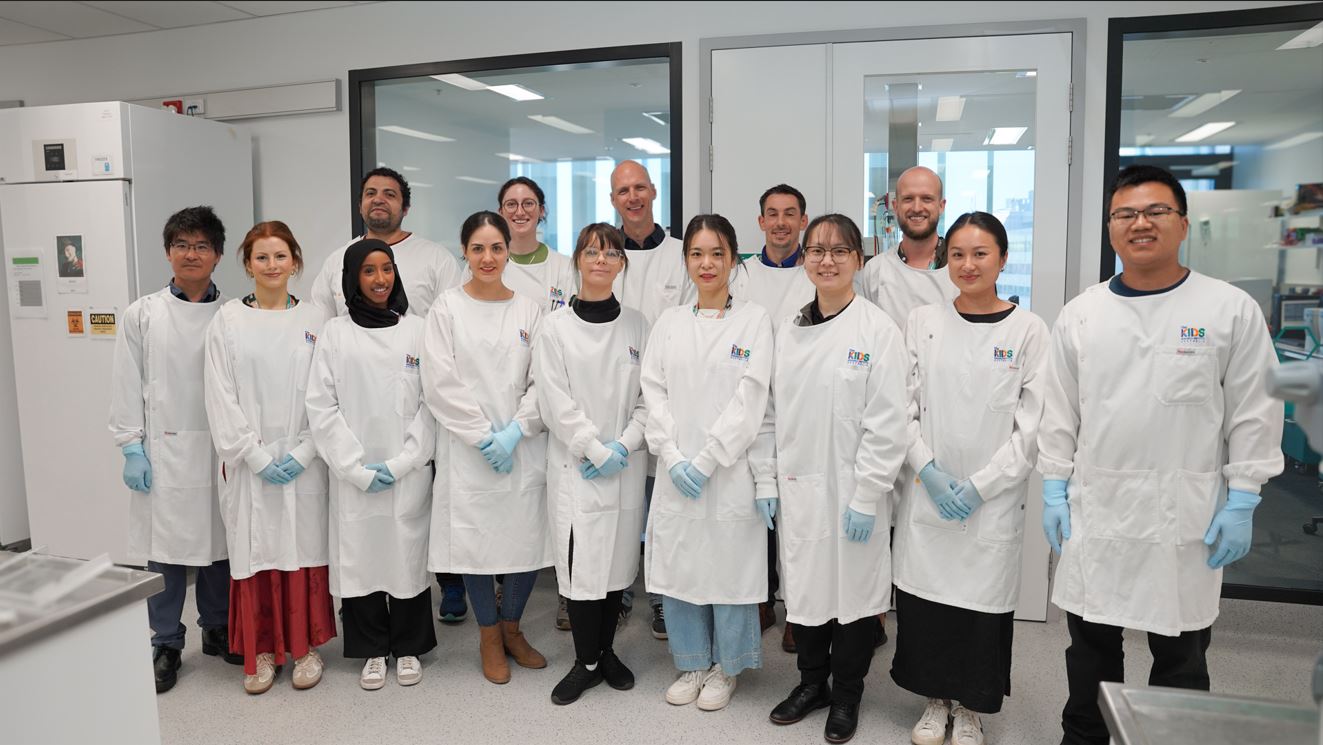Search
Research
Diverse Anti-Tumor Immune Potential Driven by Individual IFNα SubtypesOur data shows that the expression of distinct IFNα subtypes within the tumor microenvironment results in different anti-tumor activities
Research
Most clinical anti-EGFR antibodies do not neutralize both wtEGFR and EGFRvIII activation in gliomaWe discovered a previously unknown major resistance mechanism in glioma in that most EGFR domain III-targeting antibodies do not neutralize EGFRvIII

We aim to discover and develop safer and more effective treatments by doing inventive and rigorous research to improve outcomes for kids with cancer.
Research
PI3K activation in neural stem cells drives tumorigenesis which can be ameliorated by targeting the cAMP response element binding proteinOur findings present a novel mouse model for glioma demonstrating that the PI3K pathway is important for initiation of tumorigenesis
Research
The dystroglycan receptor maintains glioma stem cells in the vascular nicheThese findings reveal a central role of the DG receptor, not only as a structural element, but also as a critical factor promoting mesenchymal-like GBM
Research
Accumulation of CD103+ CD8+ T cells in a cutaneous melanoma micrometastasisResults support the emerging concept that CD103+ CD8+ tissue‐resident memory T cells are key mediators of cancer surveillance
Research
Tissue-resident memory T cells orchestrate tumour-immune equilibriumOur findings provide insight into the immune cell populations important for maintaining long-term tumour dormancy in peripheral tissues
Research
Tumor Infiltrating Effector Memory Antigen-Specific CD8(+) T Cells Predict Response to Immune Checkpoint TherapyImmune checkpoint therapy (ICT) results in durable responses in individuals with some cancers, but not all patients respond to treatment. ICT improves CD8+ cytotoxic T lymphocyte (CTL) function, but changes in tumor antigen-specific CTLs post-ICT that correlate with successful responses have not been well characterized. Here, we studied murine tumor models with dichotomous responses to ICT.
Research
The Cold Atmospheric Plasma Inhibits Cancer Proliferation Through Reducing Glutathione SynthesisCold atmospheric plasma (CAP) is a safe and effective alternative to radiotherapy for cancer treatment. Its anticancer effects are attributed to increased intracellular reactive oxygen species (ROS). Glutathione, a key antioxidant derived from glutamine, is critical for cell proliferation. This study investigated whether CAP-induced ROS elevation results from reduced glutamine-glutathione conversion and elucidates the underlying mechanisms.
Research
Coupling of response biomarkers between tumor and peripheral blood in patients undergoing chemoimmunotherapyPlatinum-based chemotherapy in combination with anti-PD-L1 antibodies has shown promising results in mesothelioma. However, the immunological mechanisms underlying its efficacy are not well understood and there are no predictive biomarkers to guide treatment decisions.
